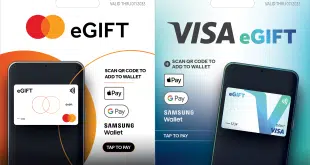Payments-industry executives and media reports have devoted most of their attention to the big debit card interchange cuts and network-routing aspects of the Federal Reserve Board’s proposed debit regulations that roiled the industry last week. But, given the Fed’s long list of requests for comment, the regulations in final form could be even more sweeping than many observers first expected. Possibly falling under their scope are ATM networks, alternative payment systems, deferred and decoupled debit cards, and closed-loop payment networks.
In a report issued Wednesday, Mercator Advisory Group Inc. researcher Patricia Hewitt noted the highly fluid situation as the Fed works on final rules implementing the debit card provisions of the Dodd-Frank financial-reform bill. “I think we had to assume it was going to be far-reaching,” Hewitt, director of Maynard, Mass.-based Mercator’s Debit Advisory Service, tells Digital Transactions News. A surprise, however, “is how much commentary they’re looking for,” she says. “There isn’t that much that’s defined. It really shows how complicated our industry is.”
In one example, the board wonders whether ATM transactions should be subject to regulation. Most discussion so far has involved debit card purchases. “ATMs are in play, let’s put it that way,” says Hewitt.
The Fed’s Dec. 16 draft proposal notes that although Dodd-Frank’s scope does not expressly include ATM transactions, the law’s definitions of “debit card,” “electronic debit transaction,” and “payment card network” could be read to bring ATM transactions within the coverage of the Fed’s final rule. “Specifically, most ATM cards can be used to debit an asset account,” the draft says. “It could also be argued that an ATM operator accepts the debit card as form of payment to carry out the transaction, so the ATM network could be covered by the statutory definition of a ‘payment card network.’”
ATM interchange, however, likely wouldn’t be regulated because the law defines interchange as flowing to issuers. In the ATM world, interchange flows from issuer to acquirer. But the law’s ban on exclusive debit-network affiliations (debit cards offering access only to commonly owned networks) very well could require that issuers enable their cards to be used in at least two unaffiliated ATM networks, according to the draft. An unaffiliated network option potentially would reduce an ATM operator’s costs because of the specter of increased competition (Digital Transactions News, Dec. 16).
The Fed also is seeking comment on whether alternative payment networks are within the scope of its rules given their ability to facilitate electronic debit transactions. Assuming operating costs would rise in such a case, regulation could be bad news for the alternatives, especially the smaller ones. “Some of them are going to struggle,” says Hewitt. Alternatives reliant on the automated clearing house, such as PayPal Inc. and the new Secure Vault Payments network, would be affected in varying ways depending on their business models and the details of what the Fed produces.
Furthermore, the Fed is wondering whether three-party, or closed-loop, networks fall under Dodd-Frank’s scope. These networks act as both issuer and acquirer. Although the Fed’s draft doesn’t name them, the most prominent examples of this type of network are American Express Co., a credit, charge and prepaid card issuer, and Discover Financial Services, which offers debit and prepaid cards in addition to credit cards. (Discover also owns the Pulse EFT network.) Dodd-Frank affects the interchange of some prepaid cards in addition to regular debit cards, but not credit cards. AmEx’s stock, however, has taken a beating in recent days on investor fears that Congress might extend regulations to credit cards.
Also on the Fed’s radar are decoupled debit, in which the card issuer doesn’t hold the cardholder’s demand-deposit account, and deferred debit systems in which transactions aren’t immediately posted to a customer’s account. The Fed believes these systems fall under the scope of Dodd-Frank but nonetheless is seeking comments about them.
Meanwhile, the Fed’s two interchange proposals, one a straight 12-cent per-transaction cap and the other offering a 7-cent “safe harbor” with the possibility of no more than 12 cents, could cause the U.S. to migrate to an entirely PIN-based debit card system, Hewitt says. Neither proposal distinguishes between signature and PIN-debit. Signature debit, mainly the province of Visa and MasterCard-branded cards, generates more revenue but has higher fraud losses than PIN debit, and it could see its average interchange whacked by more than 75%. A big shift toward PIN would take a while, however. “This is an oil tanker that is not going to move overnight,” says Hewitt. Regulation, however, will spur Visa and MasterCard into intense marketing of their respective debit-processing platforms to protect their issuer bases and keep transaction volumes up, Hewitt predicts. Dodd-Frank regulates interchange only of financial institutions with more than $10 billion in assets.
The Fed is taking comments until February. The law gives it until April to have final rules in place for debit interchange and until July for network affiliations and related issues.



